Contents
After working with many leading brands to help bring their podcasts to life, we’ve seen clients hold similar misconceptions about podcasting. And, as avid podcast listeners, we’ve tuned into shows that fall victim to the same production podcast mistakes.
If you’re looking to level up your company’s podcast or if you’re looking to ensure you start your branded podcast on the right foot, keep reading to learn the 6 most common podcast production mistakes we see brands making as an agency and how to correct them.
1) Unfocused content
With over 5 million podcasts and 70 million episodes between them, it's easy to get lost in a sea of unfocused content.
But the truth is that unfocused content isn’t just a mistake, but a missed opportunity.
Your podcast is your brand’s platform to connect, engage, and add value to your target listeners’ lives – whether it’s education, entertainment, or just a bit of comic relief. But without a clear direction, you’ll leave listeners disengaged and dropping off.
At the heart of unfocused content is the lack of clarity regarding your podcast's purpose. Without a clear understanding of why you're podcasting and who you're podcasting for, it’s impossible to create a series that resonates.
Host planning sessions
Fixing a directionless show starts with introspection and planning. Take the time to define your podcast's purpose. Hold a brainstorming session with your team and ask:
- What problem are you solving for your audience? Or what value is your show providing them?
- Who are your target listeners? What do they care about? What are their pain points?
- What will your show do that is different from others in your niche?
Once you've answered these questions, you’ll have the knowledge to tailor your content to meet listeners’ needs and interests.
Create a podcast series outline
Then, you’ll want to develop a well-structured outline that guides your content from start to finish, ensuring that every segment contributes to the overarching topic. This not only keeps your podcast focused but also helps maintain your audience's attention and engagement.
Before hitting the record button, put yourself in your listeners' shoes.
Ask yourself:
- What's the one thing I want my audience to take away from this episode?
- How will it benefit them?
By keeping their needs front and center, your content remains laser-focused and relevant.
Refine your podcast niche
Lastly, to create focused content, avoid the temptation to choose a vague, catch-all topic for your podcast. While it may seem inclusive, attempting to appeal to everyone means you’ll appeal to no one.
That’s where deciding on a branded podcast niche comes in.
What is a podcast niche? A niche is a specialized and narrowly defined topic that caters to a specific audience. A well-defined branded podcast niche gives potential listeners insight into what your show is about and helps them decide whether to invest their time.
For example, instead of creating a podcast with a broad topic like investing, create a podcast about a more refined niche like "real estate investment strategies.”
When you refine your niche, you not only help secure your brand’s spot as a thought leader but also make it easier for audiences to connect and engage with your content. They know what to expect, they know they’re the target audience for your show, and they're more likely to return for more.
2) Not prepping your guests
Whether it's failing to conduct thorough research, neglecting to map out discussion topics, or forgetting to send promotional materials, not prepping your podcast guests is a critical misstep that can impact the quality of your content and the reach of your show.
Thankfully there are ways to correct this. Here are a few things we suggest you incorporate into your guesting workflow to maximize the impact of your interviews:
Conduct guest research and create an episode structure
Start by conducting comprehensive research on your guest, familiarizing yourself with their background, expertise, and notable achievements. This exercise can be collaborative. What accolades do guests want to highlight? Which areas of expertise are they most looking forward to sharing?
After you’re comfortable with your guest research, craft thought-provoking questions tailored to their areas of expertise to provoke insightful responses and foster engaging discussions. Additionally, outline the key topics you intend to cover, ensuring a structured and purposeful conversation flow while leaving room for spontaneity.
Furthermore, take the time to revisit past recordings, noting areas for improvement and identifying recurring pitfalls. Where did discussions fall flat? Which questions sparked the best insights?
Send your guests promotional materials
Rephonic found that podcasts that feature guests receive more listeners on average – and what better way to expand your podcast’s reach and tap into a new, captive audience than encourage your guests to share their episodes across your socials?
For this to be effective, however, you need to make it as easy as possible for your guests to click “post.” Their busy people and even carving out 15 minutes to write out social copy and whip up a graphic is a big ask – so it’s best to provide them with these assets right off the bat.
Make your guests feel comfortable
You’d be surprised how much a comfortable and well-prepped guest adds to your show. When guests feel at ease and heard, they are more likely to open up, share insights, and make your podcast episode engaging.
It’s the little things that matter most here, for instance:
- Offer a pre-interview chat: Sometimes, a short pre-interview chat can work wonders in establishing a rapport with your guests. A day or two before the recording, schedule a brief conversation to discuss the podcast's flow, answer any remaining questions, and just chat.
- Create a comfortable environment: Ensure the setup is comfortable and conducive to a successful interview. A comfortable physical environment can help guests relax and focus on the conversation.
Be a supportive host: Be an active listener, respond with empathy, and encourage your guests to share their insights and stories.
3) Poor podcast audio quality
Imagine sitting down to listen to your favorite show, only to be greeted by tinny, muffled, or uneven audio.
You’re probably not sticking around (and we’re not either).
Put simply, poor audio detracts from the listening experience. Whether it's distracting mouth noises, persistent background hum, or the unfortunate consequences of over-compression, these issues can disrupt the flow of your content and leave a lasting negative impression on your audience.
Here are some actionable steps to elevate your podcast's audio quality:
Choose the right recording space:
Opt for a location with favorable acoustics to minimize unwanted echoes and reverberations. A quiet environment free from external disturbances can make a world of difference in capturing clean, professional-grade audio.
Invest in quality equipment
You don’t need expensive podcast equipment but you do need a decent-quality microphone and headphones to enhance clarity and minimize background noise. If you’re working with a podcast agency, they’ll likely provide you with everything you need, but if not, check out our guide to podcast equipment for every budget.
Hone your editing skills
Develop proficiency in audio editing to fine-tune your recordings and address any remaining imperfections. From removing background noise to balancing audio levels, refining your editing prowess can greatly enhance the overall quality of your podcast.
When in doubt, outsource
If editing and mastering isn’t for you – I get it. Thankfully there are options available if you’re looking to produce a professional quality podcast without diving headfirst into editing software.
Depending on your budget and the additional podcast services you’re after, you can partner with a podcast agency, hire a contractor, or work with an audio engineer.
4) Vague podcast titles and descriptions
Podcast titles and descriptions are the first things potential listeners will see. Yet, all too often, brands overlook them.
Remember, listeners will spend about 45 minutes (or more) with your podcast, so it’s important to know if it’s worth investing their time from the get-go. While creativity is great (and encouraged) it’s still important to let listeners know what they can expect from your series clearly and concisely.
Here are a couple of need-to-knows for crafting podcast titles and descriptions that resonate:
Keep it simple
Instead of vague promises and elusive titles, focus on laying out the contents of the episode and what it means for the listener.
- What do the guests discuss?
- Who are the guests?
- What questions do they answer?
These are the questions that should guide your episode descriptions.
Incorporate podcast keywords
Podcast keywords, a part of your great podcast SEO strategy, are words or phrases that describe your podcast series or individual episodes. These terms help listeners discover your podcast through search engines, podcast directories, and podcast apps.
Ranking for your target keywords is a crucial part of improving your podcast’s visibility and discoverability because they allow you to get in front of your target audience when they’re searching for shows in your niche.
Tell your audience what’s in it for them
We suggest speaking directly to your intended audience in your podcast description. If you're going to help them solve a problem, tell them exactly how you're going to do it and why it will work. If you're going to educate them, tell them what about and how.
Quill Tip: What’s in a name? Choosing a name for your branded podcast is no easy task. To help your team get the ball rolling, check out our blog.
5) Inconsistent release schedule
Even though podcasts are an on-demand medium, an inconsistent release schedule can leave listeners disinterested, missing episodes, and looking for an alternative show to fill the void.
We understand that scripting, recording, editing, and distributing a podcast episode is more work than whipping up an Instagram podcast or sending an email blast. However, maintaining a consistent schedule is paramount to attracting a loyal, dedicated audience.
If you’re struggling to time your episode releases, one effective strategy is to batch record. By recording multiple episodes in advance, you alleviate the pressure of weekly recordings and ensure a consistent flow of content. This approach allows you to have a backlog of episodes ready for release on schedule, mitigating the risk of unforeseen delays or gaps in your podcasting calendar.
Furthermore, it’s important to set your audience’s expectations. Communicate your release schedule clearly and tell your listeners where they can interact with you between episodes (i.e. social media, podcast website, newsletters, etc.).
6) Dropping off during your off-season
A common mistake we see brands make is forgetting to promote and leverage their podcast during the off-season.
A podcast season is a collection of podcast episodes that are released periodically, typically following a regular schedule such as weekly or bi-weekly. But once this regular cadence stops – a lot of brands are left thinking “Well what now?”
There are numerous ways you can continue to engage with your listeners during your off-season. Here are a couple of our favorites:
Repurpose podcast content
Repurposing your podcast content during your show’s off-season is a great way to re-engage audiences and attract new ones. Whether it’s through a blog post, video, social media carousel, or newsletter, we suggest reviving some of your top-performing episode topics to keep the conversation going.
Optimize SEO
Remember those podcast keywords we talked about? Here’s another way they come into play. Leveraging SEO best practices during your podcast's off-season can help maintain and even improve your search rankings, ensuring your content remains discoverable and relevant.
“One of the great things about a podcast is that the content will live on, and continuously be discovered by new listeners, but sometimes they need a nudge. Think about your marketing calendar and where those stories fit in – whether it’s an audiogram, reel, or #ThrowbackThursday. Make sure all your efforts include a clear CTA for the reader to listen to the episode and subscribe.”
-Sarah Zandbergen, Senior Producer, Quil Inc.
Create a branded podcast to be proud of
Creating a podcast is a lot harder than writing up a quick social post or sending an email. While the medium presents a tremendous opportunity to engage audiences, generate leads, and strengthen networks, if not done correctly, your series can fall flat (and your listeners will notice).
To help your brand create a show that you can feel confident in, we suggest working with a podcast agency. Agencies come fully equipped with teams of expert scriptwriters, producers, editors, sound engineers, and more to ensure your show sounds professional, resonates with your target audience, and is ready to climb the ranks.
If you want to learn more about how an agency can help you correct some common podcast faux pas, reach out to the Quill team.


.avif)
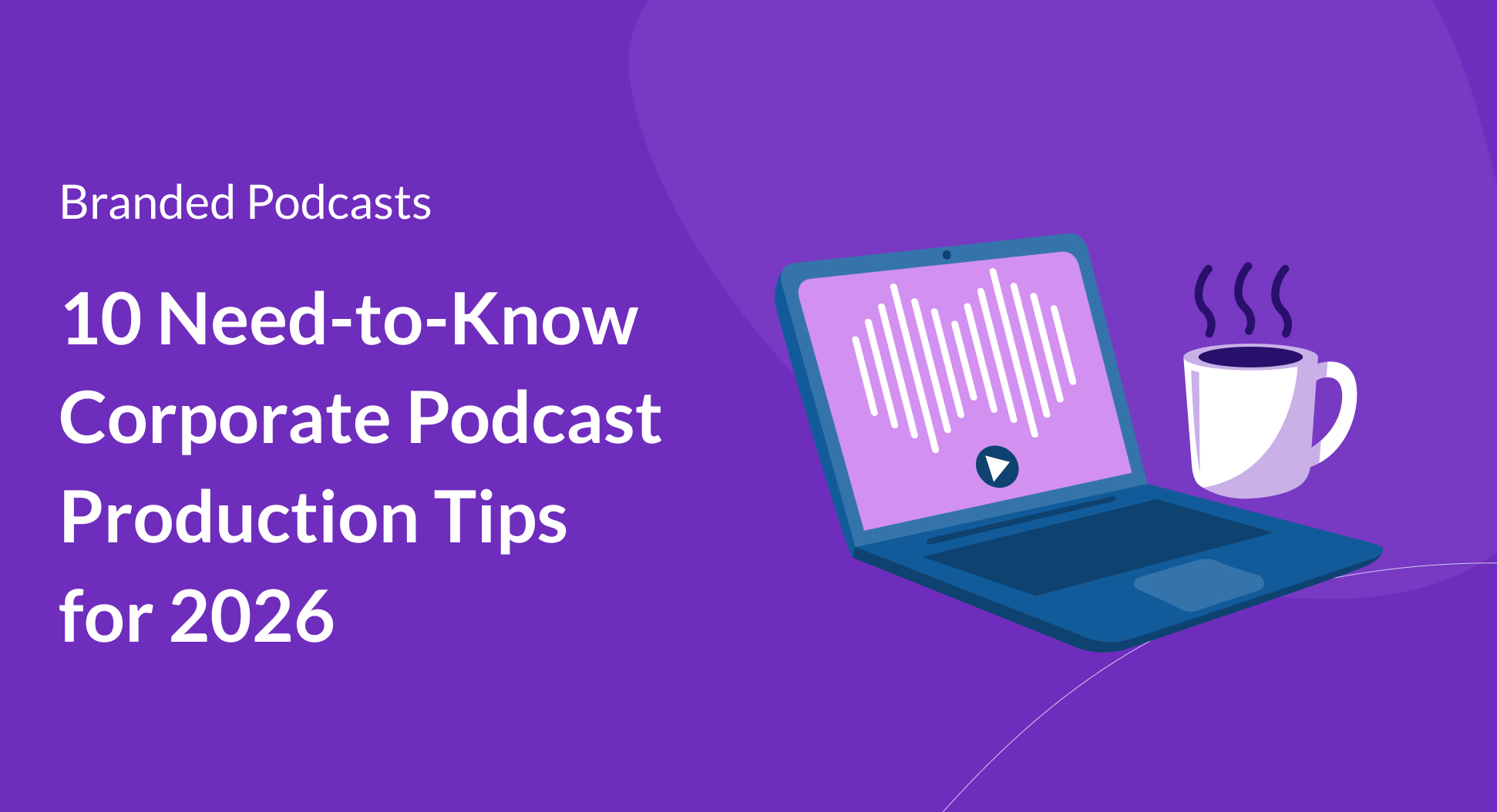
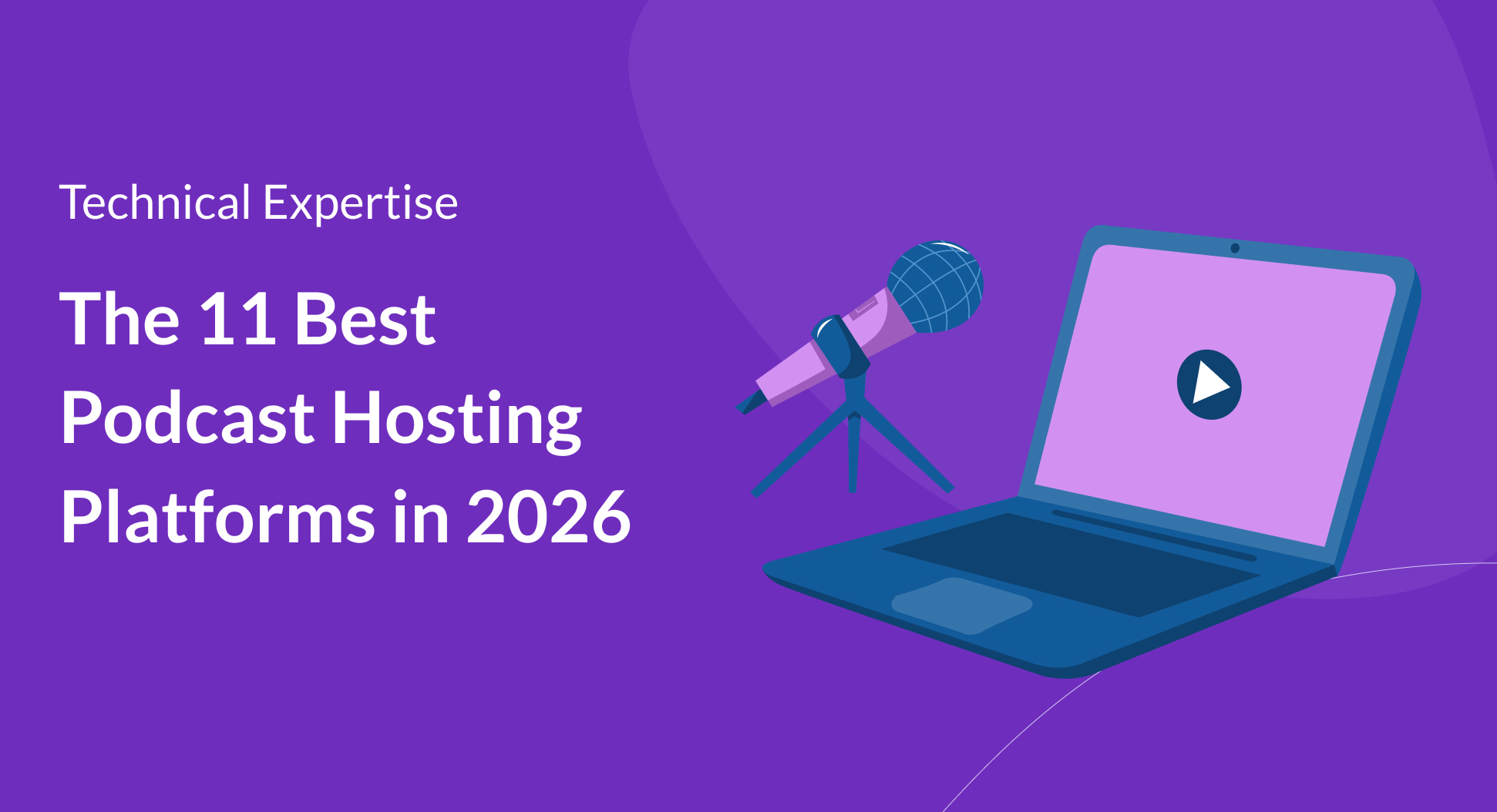
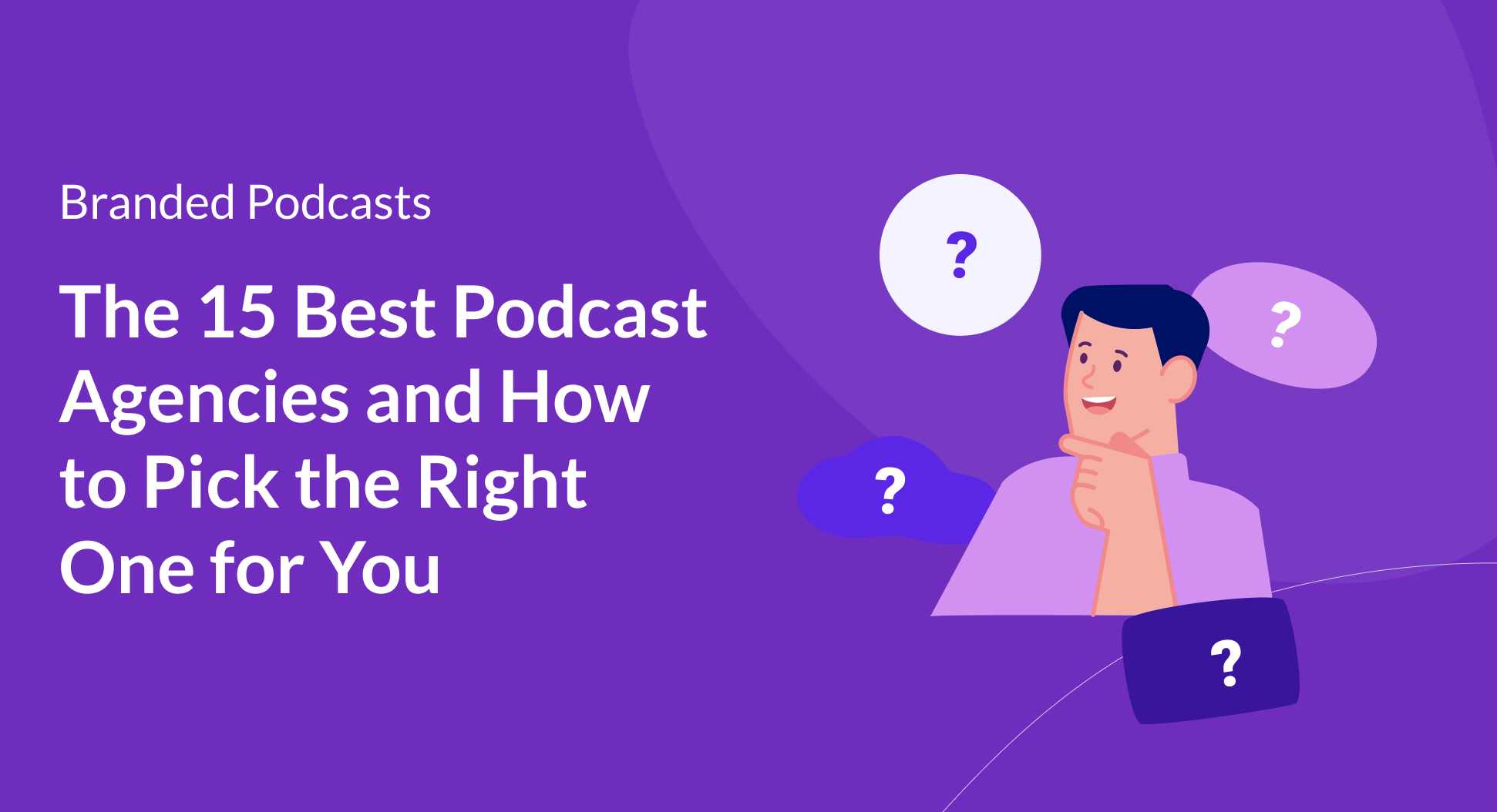
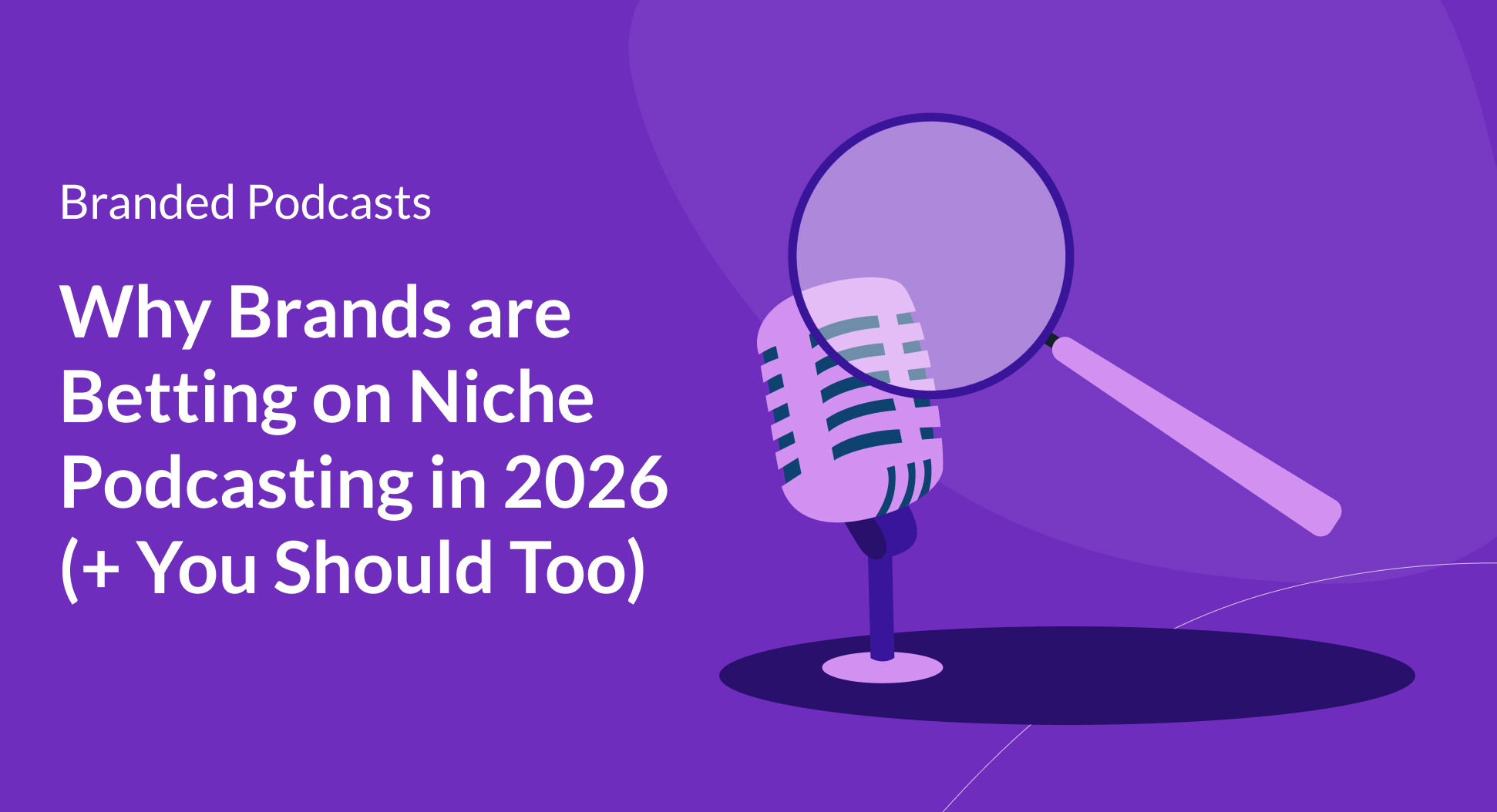
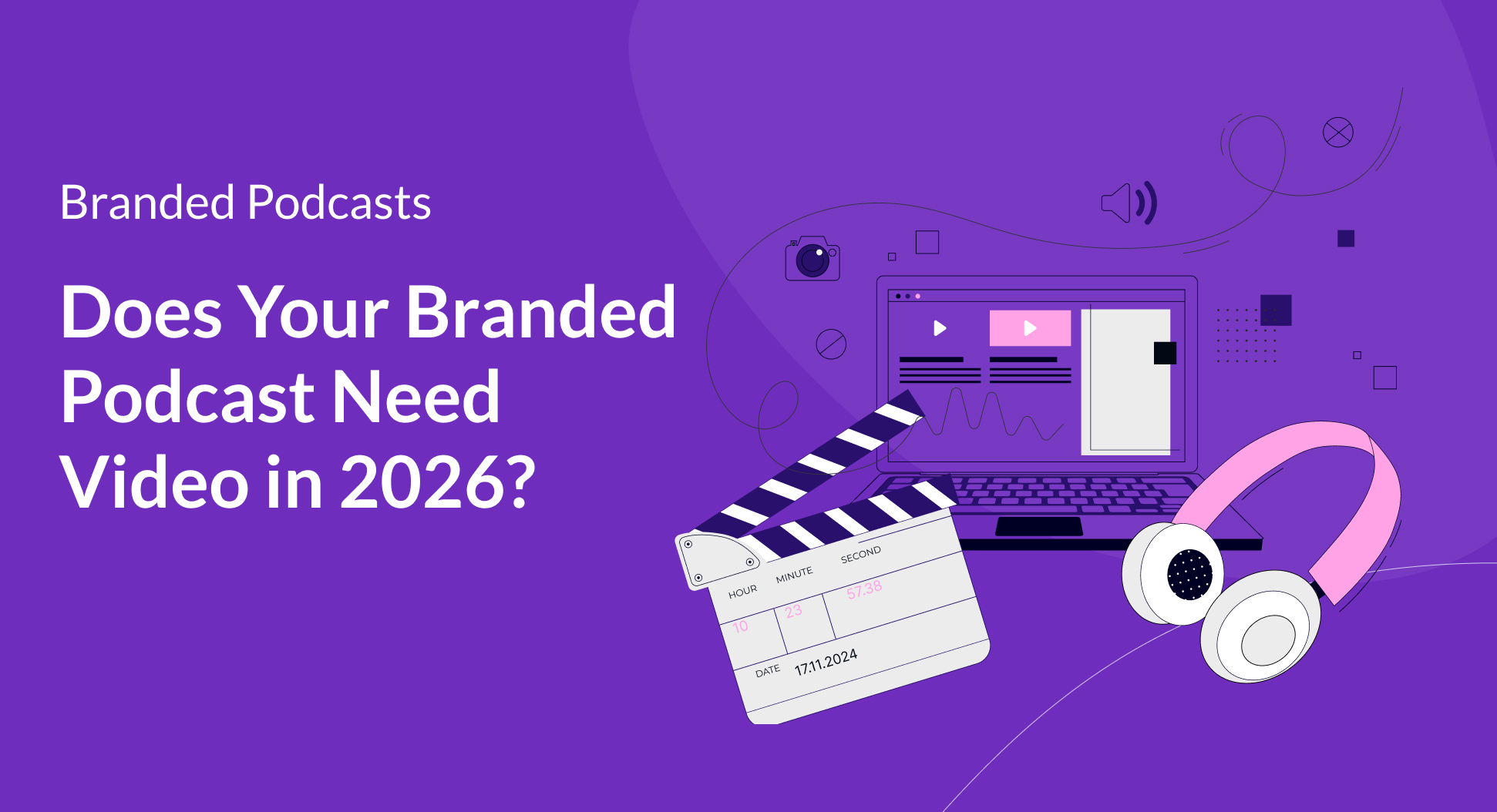

.png)

.png)




.png)
.png)
.png)
.png)